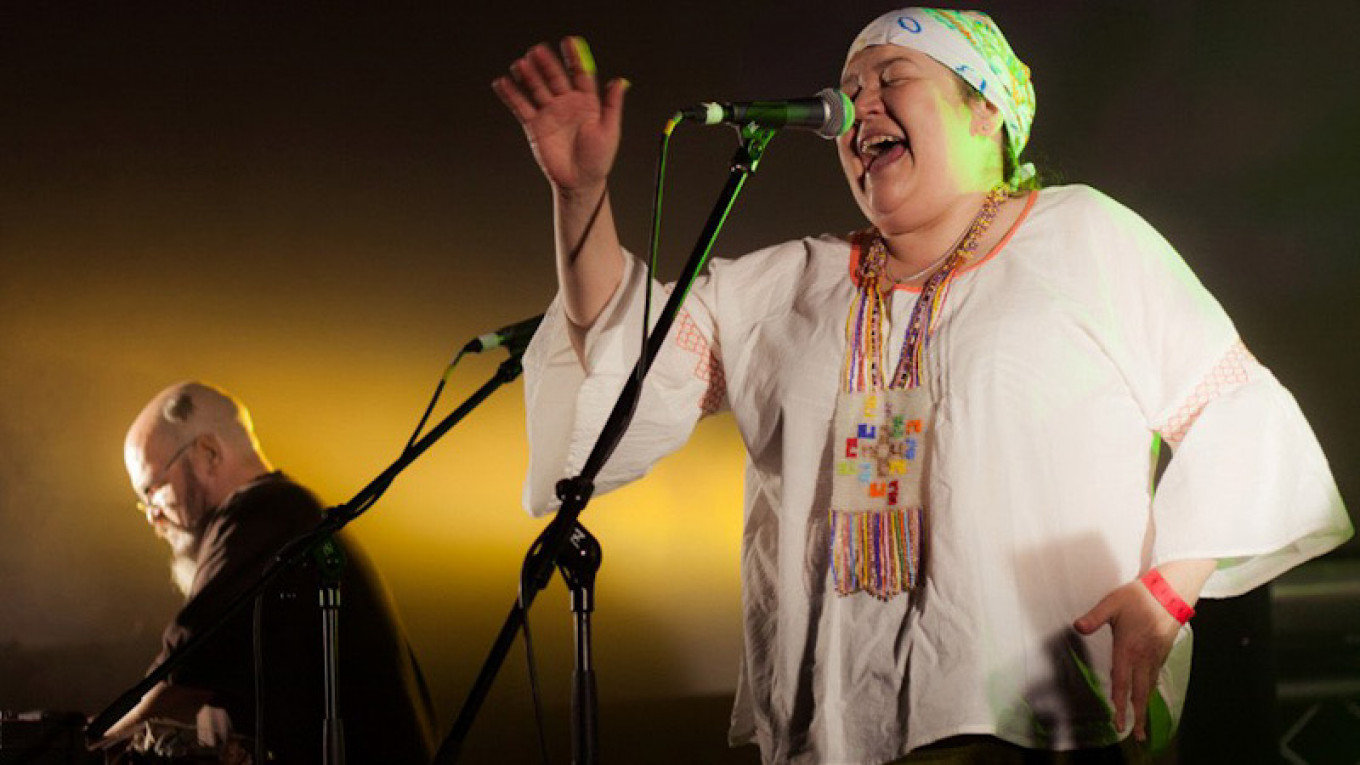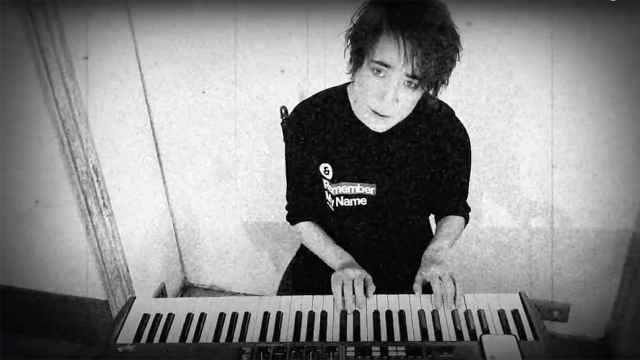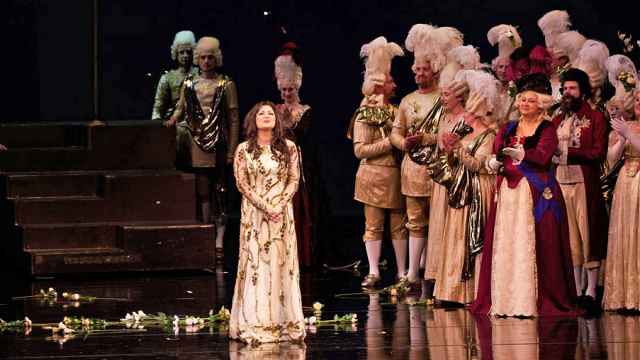In the half-light of the stage, the first chords are played as a video appears behind musicians. As Angela Manukyan begins to sing, her voice and the music send the audience into a state close to trance. This is a performance by the group “Volga” that mixes ancient songs with modern instruments.
At the heart of “Volga’s” music are melodies written by Manukyan and performed in the ethnic traditions of different regions of Russia. Some material is provided by Sergei Starostin, a specialist in Russian ethno-music. Angela Manukyan carefully studies old Russian texts, collections of Russian folklore, records, and other sources. She is also fluent in various vocal techniques native not only to Russian folk traditions but also to the ethnic traditions of the Tuva and Altai republics, Central Asia, and the North Caucasus.
The musical group was formed in 1997 at the initiative of the Moscow producer Andrei Borisov. A musician with the same last name, Alexei Borisov, described how the group got started: “He introduced me to singer Angela Manukyan, who at that time was trying to record songs based on Russian folklore. We agreed to start work on a joint album at the studio of the really prominent Russian sound engineer and producer Nick Artamonov. I invited Roman Lebedev, a multi-instrumentalist, and Yuri Balashov, an artist and an author of the unique instrument ‘sukozvuk,’ which is driftwood with a string stretched across it.”
In different periods the group has collaborated and recorded the Spies Boyz, Nikolai Nebogatov, Igor Kolesov, and Lazyfish. Borisov calls working together with other musicians on stage or in the recording studio “a good tradition” that “Volga” is now known for.
Currently, the core of “Volga” is Angela Manukyan (singer) and Roman Lebedev (multi-instrumentalist). In 2020, Yuri Balashov, who had played in all the group’s concerts and recordings and designed the group’s albums, passed away. Alexei Borisov continues to collaborate with the group as a multi-instrumentalist.
“The music of ‘Volga’ is the result of collective improvisations, which at some point seem finished and turn into songs,” Alexei Borisov said.
“Volga” is pagan psychedelia, shamanism, authentic melodies, and lyrics from Russian texts of the 12th to 19th centuries, mixed with modern electronic music. They play a synthesis of various musical traditions — ethnic, electronic, industrial, ambient and noise music — on various string and other instruments. At concerts, the group improvises depending on each specific situation. The performances of the collective are played against the backdrop of videos created by Moscow video artist Roman Anikushin.
The group has already produced more than ten albums, and they perform throughout Russia as well as in Germany, Finland, Slovenia, France, Estonia, Norway, and other countries. The group often performs at festivals, like the AWAZ music festival recently held in Kazan.
See performances on the group's YouTube channel, volgamusic.
A Message from The Moscow Times:
Dear readers,
We are facing unprecedented challenges. Russia's Prosecutor General's Office has designated The Moscow Times as an "undesirable" organization, criminalizing our work and putting our staff at risk of prosecution. This follows our earlier unjust labeling as a "foreign agent."
These actions are direct attempts to silence independent journalism in Russia. The authorities claim our work "discredits the decisions of the Russian leadership." We see things differently: we strive to provide accurate, unbiased reporting on Russia.
We, the journalists of The Moscow Times, refuse to be silenced. But to continue our work, we need your help.
Your support, no matter how small, makes a world of difference. If you can, please support us monthly starting from just $2. It's quick to set up, and every contribution makes a significant impact.
By supporting The Moscow Times, you're defending open, independent journalism in the face of repression. Thank you for standing with us.
Remind me later.






